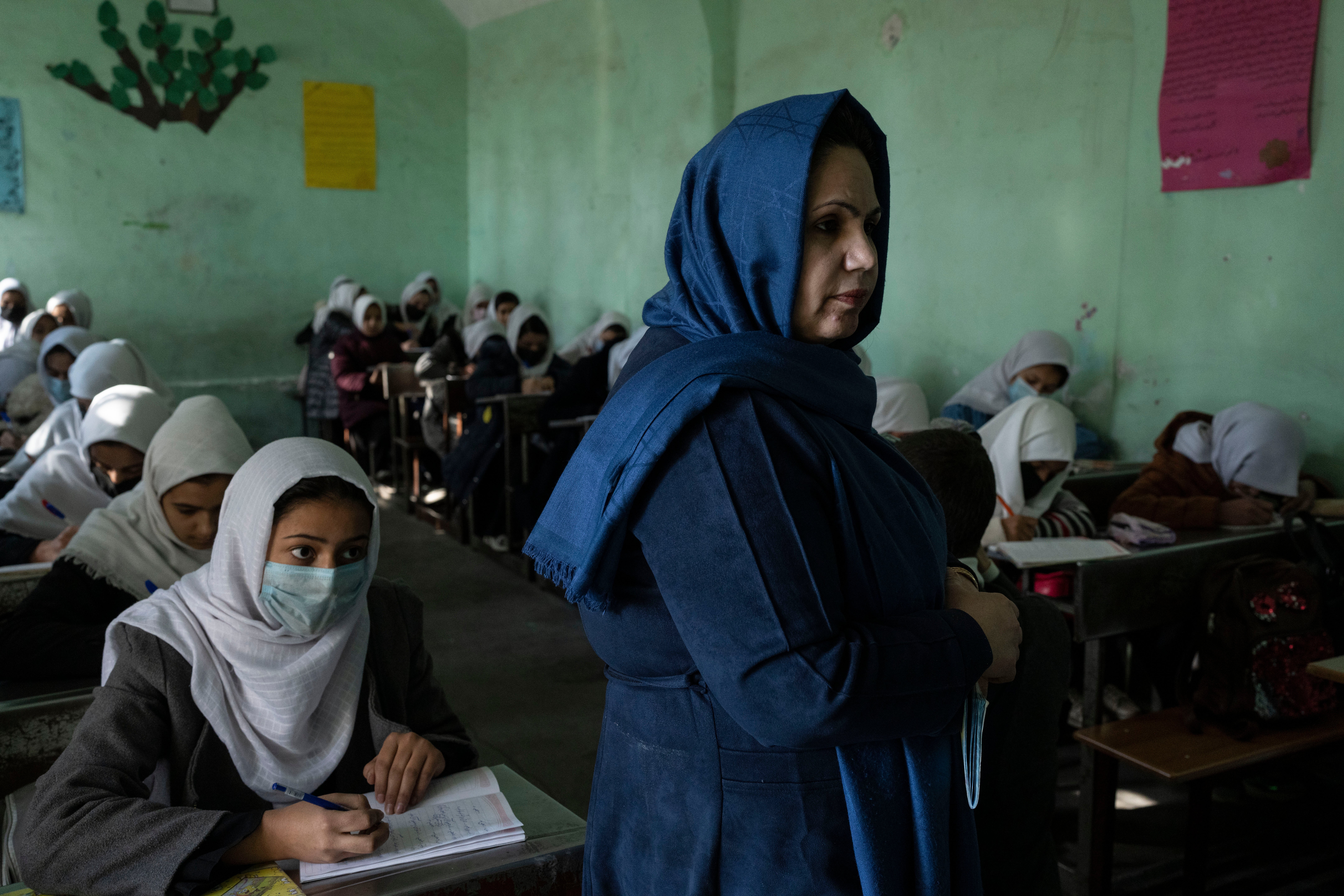‘A woman is not a property’: Taliban issue decree on female rights
The Taliban remained silent on basic rights, including education and work

Your support helps us to tell the story
This election is still a dead heat, according to most polls. In a fight with such wafer-thin margins, we need reporters on the ground talking to the people Trump and Harris are courting. Your support allows us to keep sending journalists to the story.
The Independent is trusted by 27 million Americans from across the entire political spectrum every month. Unlike many other quality news outlets, we choose not to lock you out of our reporting and analysis with paywalls. But quality journalism must still be paid for.
Help us keep bring these critical stories to light. Your support makes all the difference.
The Taliban government issued a decree saying women in Afghanistan should not be considered “property”, and should consent to marriage.
The militant group’s latest diktat issued on Friday, however, still remains silent on basic rights for women, including the right to get educated and work outside their homes.
The group has been ruling Afghanistan for more than three months now.
“A woman is not a property, but a noble and free human being; no one can give her to anyone in exchange for peace … or to end animosity,” the Taliban’s spokesperson Zabihullah Mujahid said in a statement.
The latest decree stated rules governing marriage and property rights for women, and took a stand against forced marriages.
In its first such official order, the Taliban also said widows should be granted a share in their deceased husband’s property.
It also asked courts to consider these rules when making decisions. Officials from religious affairs and information ministries have been asked by the Taliban to promote these rights.
This directive comes at a time when the militant group is facing scrutiny from the international community amid reports of gross violations of human rights, including the shutdown of schools and colleges for women, after the US-backed administration led by president Ashraf Ghani collapsed in August.
Another problem citizens face is a consequence of the country’s collapsing economy. Facing severe debt and starvation, Afghans are selling off their young daughters in exchange for dowry money. In some cases, destitute parents are forced to make promises of offering their baby girls for future marriages.
The new diktat has refreshed memories of the Taliban’s previous hardline rule from 1996 to 2001– before it was ousted by the coalition of western countries – where it barred girls and women from attending schools, colleges and offices.
The ultra-conservative rule at that time did not allow women to go out in public without a male family member, usually a husband or a father. Those found in violation of the rule were flogged in public or given other cruel punishments.
In its second stint, however, the Taliban told western forces that it would be willing to accommodate women’s rights by easing their access to public spaces.
Three months into the Taliban’s second term in power, the country is on the brink of economic collapse after the international community froze billions of dollars of funds in the central bank. The crisis has been compounded by a liquidity crunch, leaving millions vulnerable – especially children – and on the brink of starvation.
Join our commenting forum
Join thought-provoking conversations, follow other Independent readers and see their replies
Comments